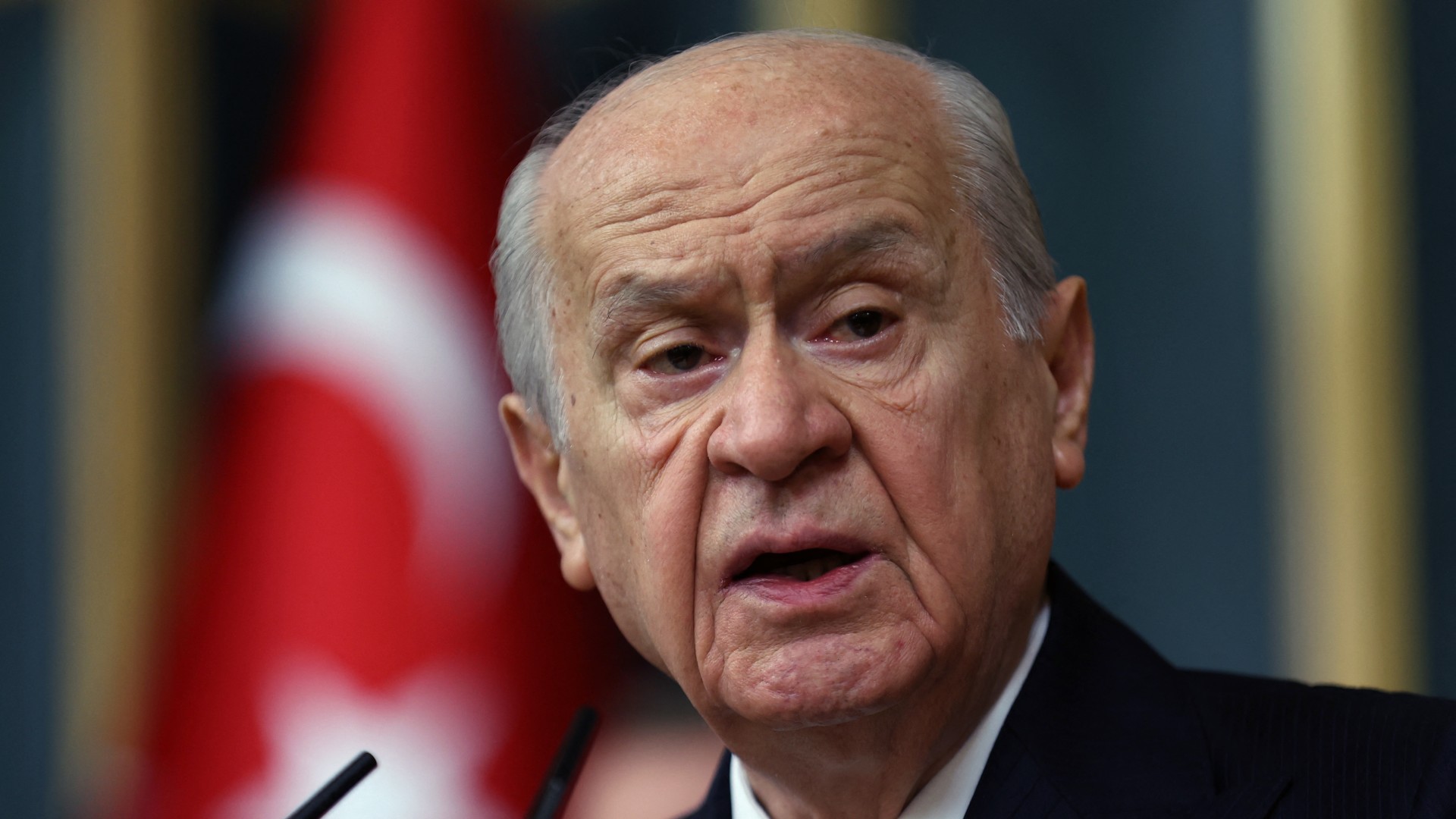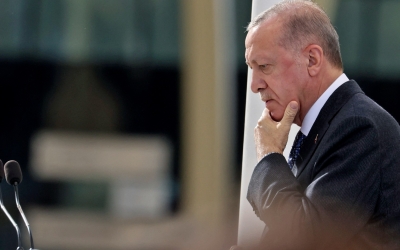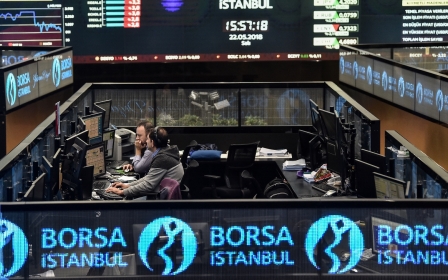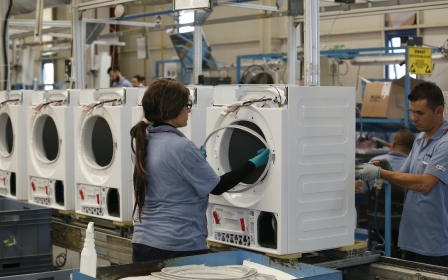The Turkish government doesn’t want you to shop at discount stores
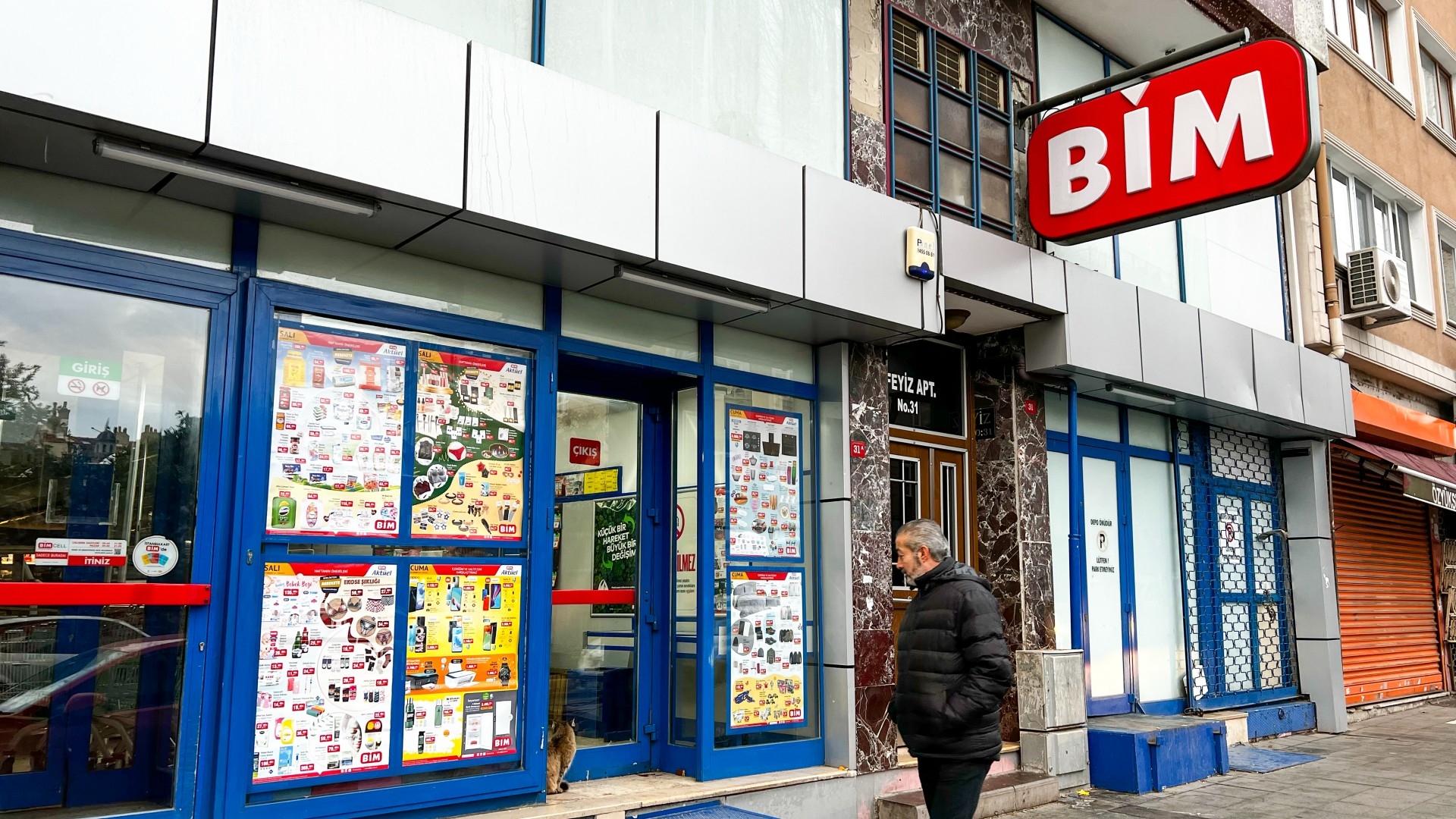
At a time when millions of Turkish people are struggling as their livelihoods are hit by soaring inflation, shopping at discount stores has become a useful way to help make ends meet.
Yet these shops are not useful, according to the Turkish government. In fact, if you believe Turkish President Recep Tayyip Erdogan’s nationalist ally, Devlet Bahceli, they may be linked to an outlawed terror group plotting to tear down the country.
Bahceli, head of the Nationalist Movement Party (MHP), which is a key partner of Erdogan’s AKP, has called for an investigation to be launched into discount retailers to reveal whether they have connections to the movement of Fetullah Gulen, the US-based cleric accused of plotting the 2016 coup attempt.
The cause of this suspicion? Discount stores have begun raising their prices and authorities claim this is contributing to inflation.
New MEE newsletter: Jerusalem Dispatch
Sign up to get the latest insights and analysis on Israel-Palestine, alongside Turkey Unpacked and other MEE newsletters
“They increase the prices because of their displeasure with social stability in our country. Their relations with FETO must be investigated. There should be no tolerance towards the greedy,” Bahceli said during a meeting last week, using a common acronym for the Gulen movement.
Bahceli referred to the chains - BIM, SOK, and A101 – only as the “three-lettered ones”, a term used instead of “cin”, the Turkish word for djinn, who are malevolent spirits that in folklore can be summoned just by saying their name. “Three-lettered one” is also a term used pejoratively to describe greedy or insolent people.
Fighting back
The attack on the discount retailers comes amid a deep economic crisis in Turkey, where inflation and the depreciation of the lira against the US dollar have caused havoc.
According to official statistics, inflation in November hit 84.39 percent. An independent assessment put the real rate at 170.70 percent. Meanwhile, food prices have risen 137 percent over the past year.
BIM’s CEO Galip Aykac, who is also head of the retailers’ association, recently defended his company. “Those who accuse us are ill-intentioned,” he said, implicitly blaming the government’s economic policies.
“The supply-demand chain is broken,” he said, stressing that inflation would be unaffected even if the companies cut their profits.
Aykac expressed anger at Bahceli. “People of this country do not believe your lies,” he said.
However, those were his last public comments as head of the retailers’ association. Within hours Bahceli’s supporters began sending him death threats. Notably, even fellow discount chain SOK asked Aykac to step down.
Aykac apologised to Bahceli, saying he did not mean to “hurt him”, but that did not mitigate the MHP anger.
Kursat Yilmaz, an MHP member convicted of leading a criminal group in the 1990s, told Aykac that BIM shops “will become your graves”.
In Antalya, a BIM store was vandalised, while footage circulating online shows a man and his children in another of its stores asking people not to shop there.
Some municipalities run by members of the AKP or MHP have carried out inspections of the discount chains, even going as far as to impose fines.
In the eastern town of Agri, 10 discount stores have been closed down altogether.
But Bahceli’s accusations are not the first attack on discount stores.
Last year, Erdogan accused five of them of stocking up on goods at cheap prices before selling them on at highly marked-up rates.
The government also began discussing the idea of opening state-owned stores to rival the chains.
The Turkish Competition Authority also imposed a 2.7 billion lira fine on the chains last year (then around $283m) for violating competition rules.
Many economists argue that the government’s unorthodox policies, such as last week reducing the interest rate to nine percent, lie behind soaring food prices – not the profits of discount stores.
Based on the discount retailers’ statistics, Ugur Emek, an economist at Baskent University, asserted: “They were making a loss in 2019, started making profit this year but its rate is not more than five percent."
Kemal Kilicdaroglu, head of the main opposition Republican People’s Party (CHP) said the government was seeking a scapegoat to “cover its incapableness”.
“If these discount retailers are increasing prices for no reason, then Competition Authority can lead an investigation and issue a fine if necessary,” he said.
In fact, Deutsche Welle Turkish made a comparison between BIM and the state-owned market and found products were overall slightly cheaper in the chain.
Gazete Oksijen also reported that the profits made at these stores were more or less the same as others operating in Europe.
Who is cheapest?
The whole saga has left people confused and unsure of who is actually selling the cheapest goods.
Bahattin Kuvvet, a worker in a dress shop, told Middle East Eye: “We can’t calculate if a product is expensive or not. But I don’t see any difference between the prices of these big markets and the local ones.”
Complaining about the constantly increasing price of life's essentials, Kuvvet added: “There should be some fundamental changes in the economy.
“We just try to meet the ends. Attacking the markets is nonsense. They were doing the same thing against food wholesalers a few years ago,” he said, referring to the police raids on onion and potato wholesalers after accusing them of overstocking and causing a shortage in markets.
'I don’t see any difference between the prices of these big markets and the local ones'
- Bahattin Kuvvet, dress shop employee
Murat, a public employee who asked MEE to conceal his surname, said: “We, the state employees barely survive.
"After leading to the depreciation of lira and to the increase of costs, they [the government and its allies] are blaming the markets, huh? This is absurd!”
However, Kerim, a street vendor selling fruit in a pushcart, thinks the chains have been raising prices with no regard for how it affects other merchants.
“Even if there is no increase in the prices, they tend to sell more expensive than us. Then, they say they are giving a discount,” he complained.
Kerim believes the main problem with the discount chains is not their price policy.
“Instead, their existence is a problem," he said. "They are everywhere. In a neighbourhood, you can see dozens of them. How are we going to compete with them?”
There are more than 30,000 BIM, SOK and A101 stores across Turkey.
Middle East Eye delivers independent and unrivalled coverage and analysis of the Middle East, North Africa and beyond. To learn more about republishing this content and the associated fees, please fill out this form. More about MEE can be found here.



